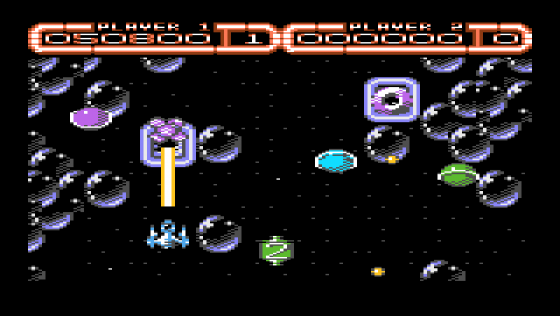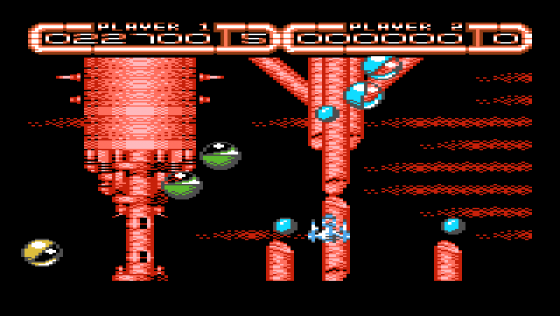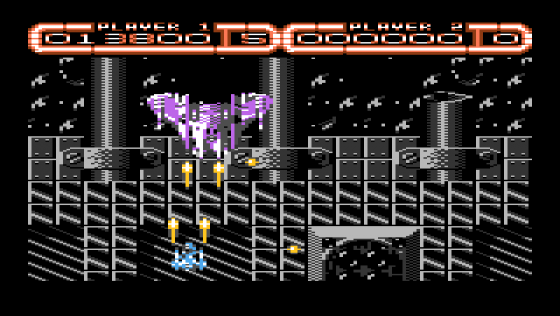As with all consoles, the Atari 7800 had its fair share of unreleased titles - but now, thanks to the work of the guys at AtariProtos.com you can finally add two more games to your collection! T.M.R gives Plutos a good going-over in the first of his two-part 7800 prototype write-up.
Plutos
Along with its sister game Sirius (which has been covered elsewhere in this issue) Plutos is an aborted Atari 7800 project that was being developed by Tynesoft in the late 1980s. It's also a scrolling shoot 'em up like its sibling, but varies in that the scrolling direction is vertical rather than horizontal and rather than being a solo mission, this one can be attempted alone or with a second player to help with the carnage. And the environment that this destruction takes place in is well appointed as well, the scrolling backgrounds are well defined and the sprites that whiz around over them stand out nicely, move smoothly and are well animated. Sonically things are a bit lacklustre, in fact the sounds appear to be at least very similar to Sirius and there is no music at any point throughout play.
The weapon upgrades used in Plutos are unusual, along with a shield, there are numbered pods that are occasionally dropped when an attacker is destroyed and these activate and power up different guns. In total there are three weapons systems which each have four levels of power; the default is weapon 1 which is a standard forward-firing cannon that reloads faster as it's charged, weapon 3 is a beam laser that similarly increases in kick as pods are collected, is slower moving but does more damage to the nasties and weapon 2 is the odd one because it starts off as three large, spherical bullets firing forward, left and right, then becomes three missiles that fire forward and at 45 degree angles, passes briefly through a large "wave laser" that moves upwards but is much wider than anything else in the game before inexplicably changing back to the firing pattern used by the missiles but with large bullets and a faster reload rate. The one thing that players have to bear in mind is that over charging the weapons will cause them to revert back to their original state, as does changing from a fully charged weapon to one of the others.
Despite being a prototype, Plutos is well presented, feels pretty much complete and is pretty solid to play as well; there are some minor cosmetic hiccups and glitches but certainly not as many as Sirius (and some, such as the "broken" level completion screens, are presumably down to emulation rather than the game itself), the overall structure of the game is there and it's been nicely planned out and balanced. The controls are simple and get their job done pretty well and the aliens swarm around the screen in varied, interesting and mostly difficult to avoid patterns. And, although there are moments where the player may express a few expletives (like when the ship is forced into a tight place and during the ensuing battle to dig itself free an unavoidable weapon pod drops onto it and downgrades the guns), I really do like the weapon system; it needs to be thought about rather than simply grabbing every power up that goes past because the weapons themselves are distinct and the way that changing guns resets the power system sees the player dodging more power ups than they actually collect! All in all, Plutos offers a good, solid challenge to most shoot 'em up fans either alone or with a friend.


 1st March 2009
1st March 2009





